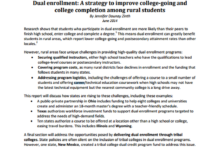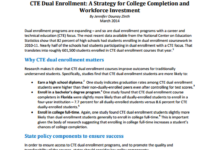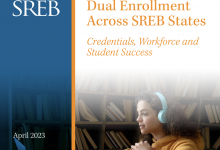National data reports that 80 percent of students who enroll in community college intend to obtain a bachelor’s degree. However, only about 14 percent achieve that within six years. Washington State addressed this challenge by creating Direct Transfers Agreements (DTAs), by which all public four-year colleges and community colleges have partnered to form universal statewide transfer agreements. The DTAs guarantee that a student who obtains an associate degree within the DTA curriculum from a public community or technical college will have completed the general education or core requirements of any public four-year institution. The goal is to pave the way for a seamless transfer to the junior-year class at a public four-year college after completing the associate degree requirements.
The DTA degree provides participating students with the following:
- Priority consideration in the admissions for most humanities and social science majors public universities ahead of students without a degree
- Completion of lower division general education requirements
- Credit for all courses completed within the DTA up to and in some cases beyond 90 credits
- Opportunity to explore several fields through the category of up to 30 credits of elective courses
- Opportunity to complete prerequisites for a future major
The guidelines for a DTA associate degree continue to be revised by the Intercollege Relations Committee so as to meet the changing academic needs of students. The continuous review has supported the development of the general education portion of an associate degree, and led Washington to have rigorous general requirements.
Policy in Action
In Fall 2019, almost half of CTC postsecondary credential-seeking students were enrolled in a transfer degree program. More than 40 percent of postsecondary credentials earned at a CTC in academic year 2019-20 were transfer degrees. Some two and four year colleges have taken the collaboration one step further to create DTAs for specific fields. For example, Everett Community College (EvCC) took stock of the colleges where its students most often transferred, and built additional DTAs for students to go right into a specific major such as computer science, biology or psychology. Across the state, DTA major related programs exist in biology, business, computer science, construction management, engineering, math education, music, nursing and pre-nursing.
Over ten years ago, EvCC faculty found that of the 4,000 students who had noted they ultimately wanted to transfer to a four-year college, less than 400 did so in reality. Since then, because of EvCC’s new measures, between 2007 and 2012 the student transfer rate increased by 47 percent and between 2007 and 2010 the four-year degree attainment rate increased by 57 percent.
Washington’s publicly available data does not track CTC students after they earn a transfer degree. The closest data point available shows that 69 percent of the CTC students who transferred to a public four-year institution or a CTC bachelor’s degree program in the 2016-17 academic year did so with a transfer degree.
Related Links
- Community College Research Center: The Transfer Playbook: Essential Practices for Two-and Four-Year Colleges
- Education Commission of the States: 50 State Comparison: Transfer and Articulation Policies
- Washington Intercollege Relations Commission: The ICRC Handbook
- Report: 2021 Washington transfer associate degree effectiveness update (2021)
Last updated: August 2021






